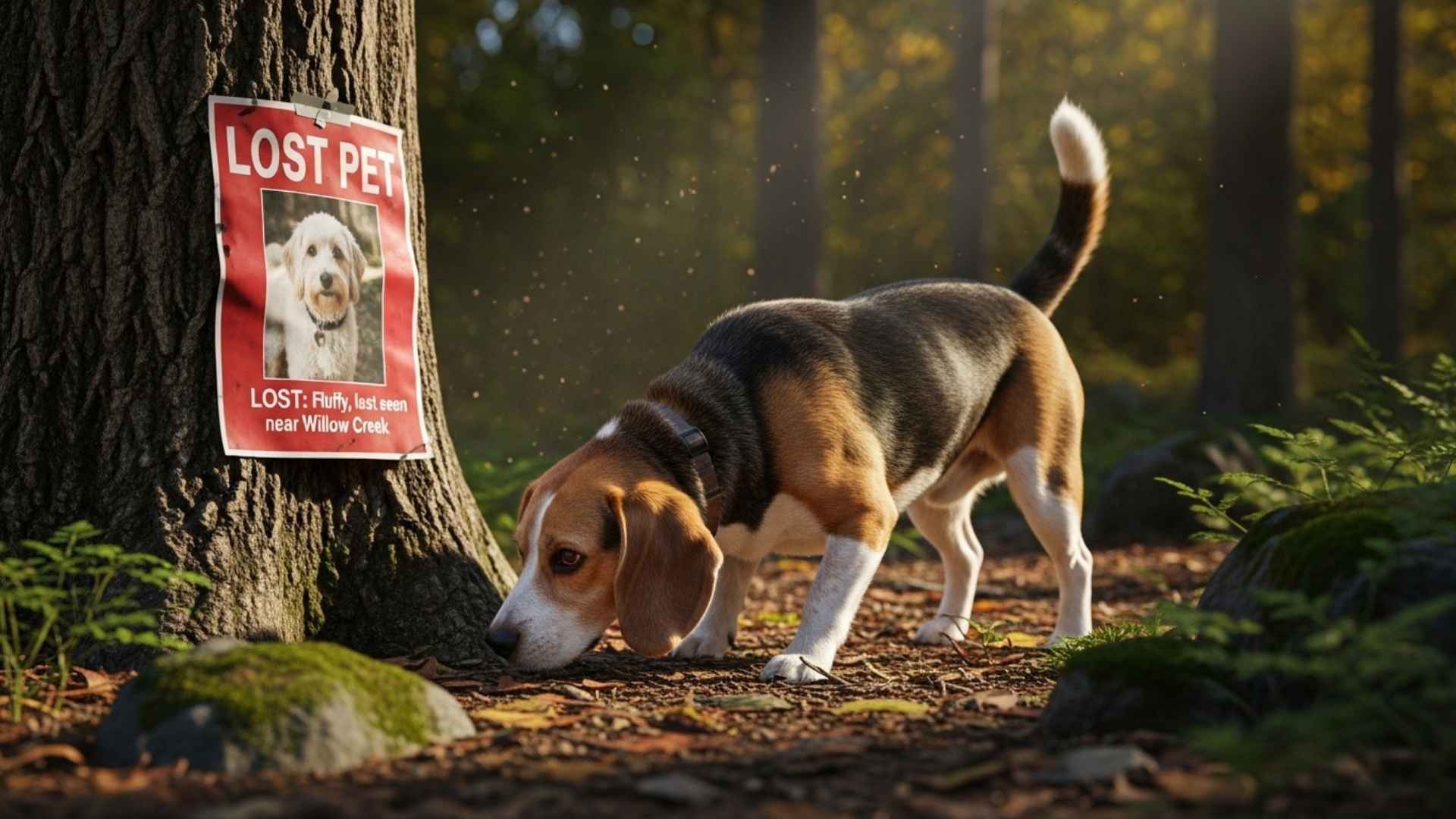What if your beloved pet suddenly went missing? The fear and uncertainty can be overwhelming, but fortunately, some dogs are naturally gifted at tracking and locating lost animals, turning panic into hope.
Thanks to their incredible noses and instincts, these search and rescue dogs can follow faint scent trails that humans would never detect.
According to a study, a dog’s sense of smell is tens of thousands of times stronger than ours, enabling them to navigate forests, urban areas, and complex terrains with astonishing precision. This makes them essential in rescue teams.
When trained for tracking tasks, these dogs work seamlessly with humans, performing search and rescue operations that reunite families with missing pets.
In this guide, we explore ten dogs that excel at finding lost pets, highlighting how their instincts, determination, and cooperation with handlers make them real-life heroes.
Dog Breeds That Can Track Lost Pets Naturally
1. Bloodhound
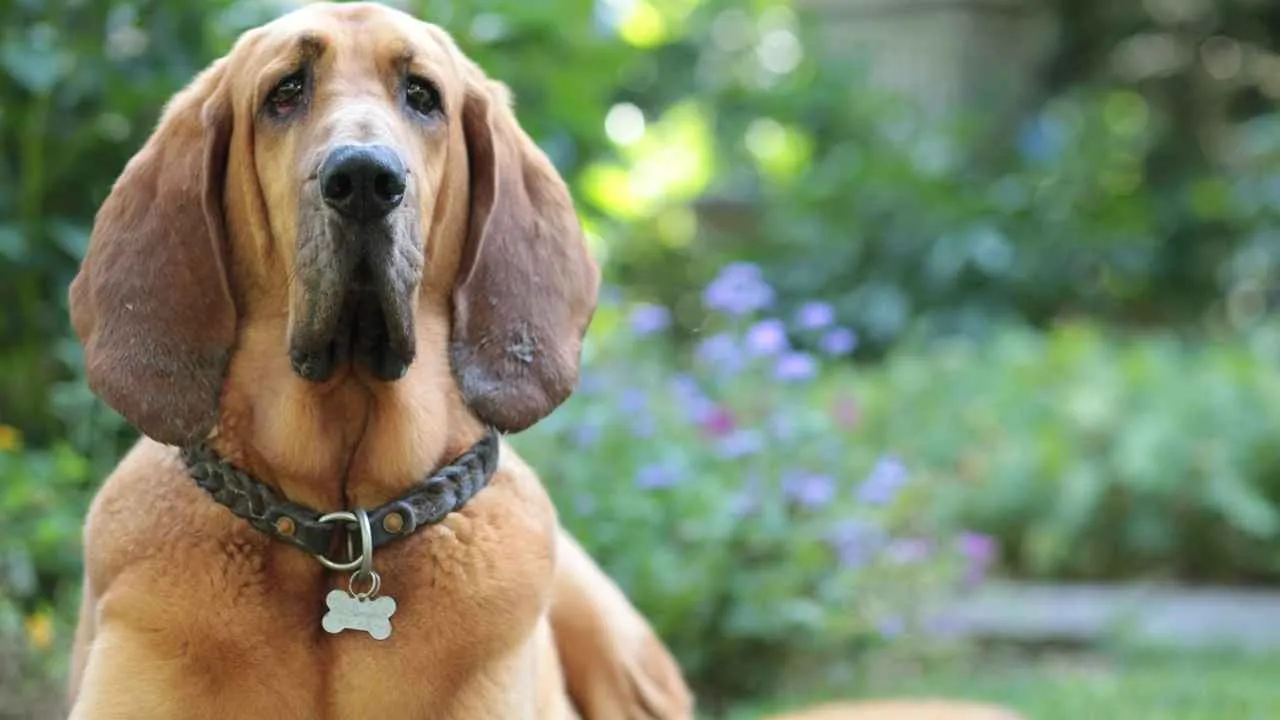
The Bloodhound is famous for its extraordinary tracking abilities, capable of following scent trails that are days old. Their long, drooping ears help sweep scents toward their sensitive nose, making them natural search and rescue dogs.
These dogs are highly intelligent and patient, allowing them to focus on a trail for hours without distraction. Their dedication makes them invaluable in locating lost pets and assisting in search and rescue operations.
Bloodhounds are gentle and loyal, forming strong bonds with their handlers while performing critical tracking tasks. They thrive on challenges and enjoy using their nose to solve real-world mysteries.
Fun Fact: A Bloodhound’s nose is so powerful that its tracking results are often admissible as evidence in courts in both the United States and Europe.
2. Beagle
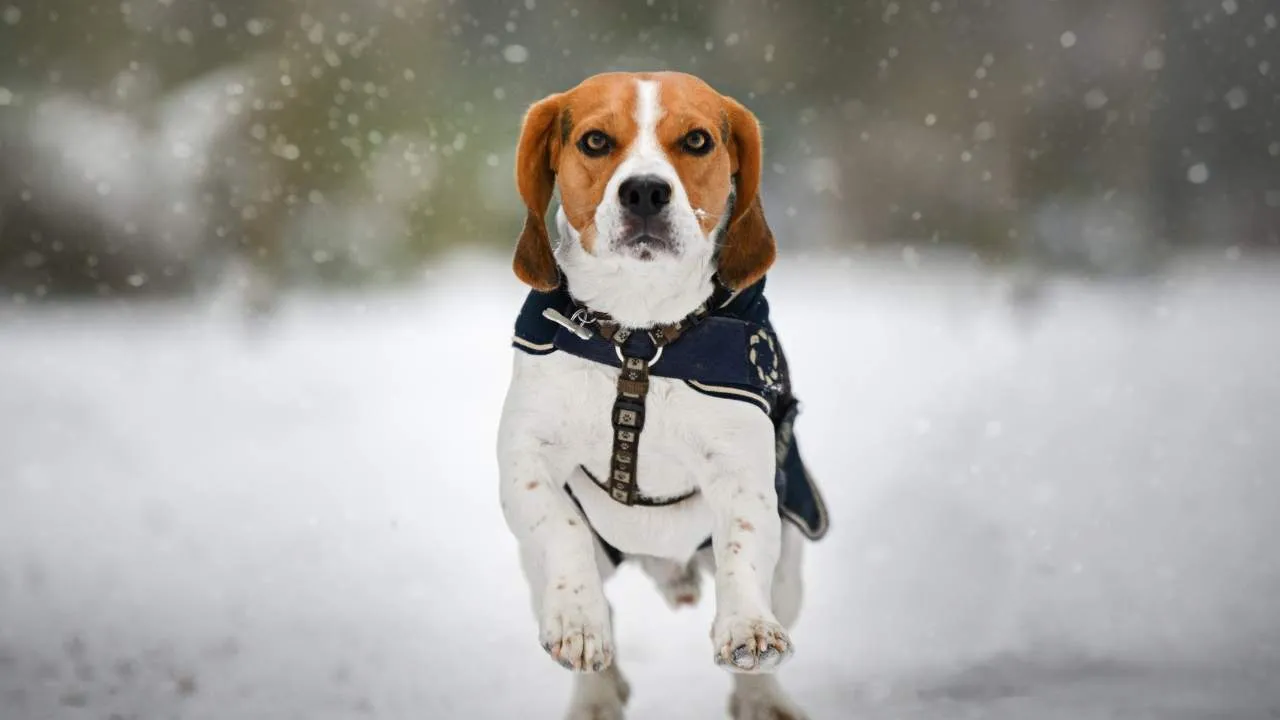
Beagles are small but powerful dogs with a strong sense of smell, making them natural tracking dogs. Their curiosity and determination allow them to follow faint scent trails for long distances.
These dogs are intelligent and energetic, enjoying tasks that challenge their tracking skills. Their focused approach makes them excellent companions in search and rescue work, especially when locating lost pets in varied environments.
They are affectionate and loyal, building close connections with their handlers while carrying out search and rescue work. Beagles excel when challenged with scent-based tasks, turning each search into an exciting and meaningful mission.
Fun Fact: Beagles have been used for centuries in both hunting and tracking tasks because their noses are so accurate that they can detect scents even underground.
3. Labrador Retriever
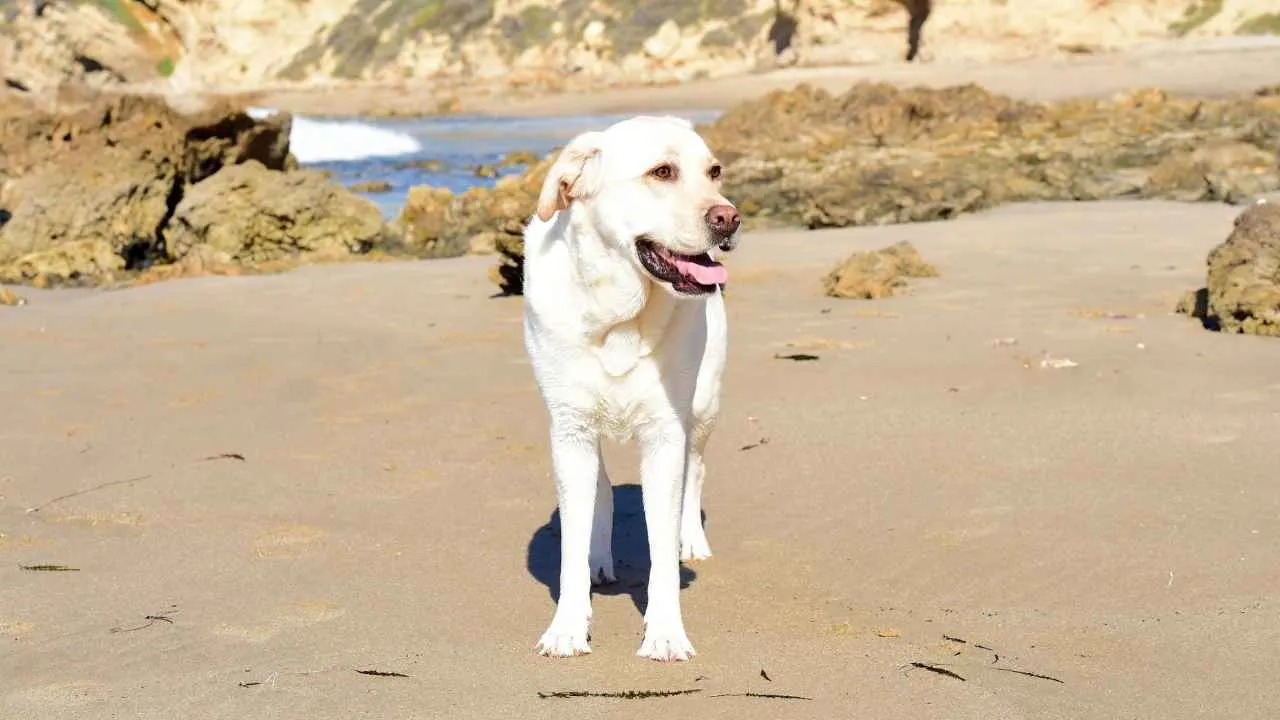
The Labrador Retriever is a friendly, energetic dog known for its intelligence and strong work ethic. Beyond being a loving family companion, Labs have an excellent sense of smell, making them natural SAR dogs for locating missing people and animals.
With a sturdy, well-balanced build, they are agile and athletic, able to navigate different terrains while following scent trails. Their high energy and stamina make them perfect for search and rescue work, as they can focus on tracking for long hours, according to the AKC.
Labs thrive on scent-based tasks and exploring environments, which helps them follow lost pets’ trails. Their teamwork with handlers and focused determination make searches efficient and reliable.
Fun Fact: Labs often assist in search and rescue operations and can follow faint trails, even in difficult or urban environments.
4. German Shepherd
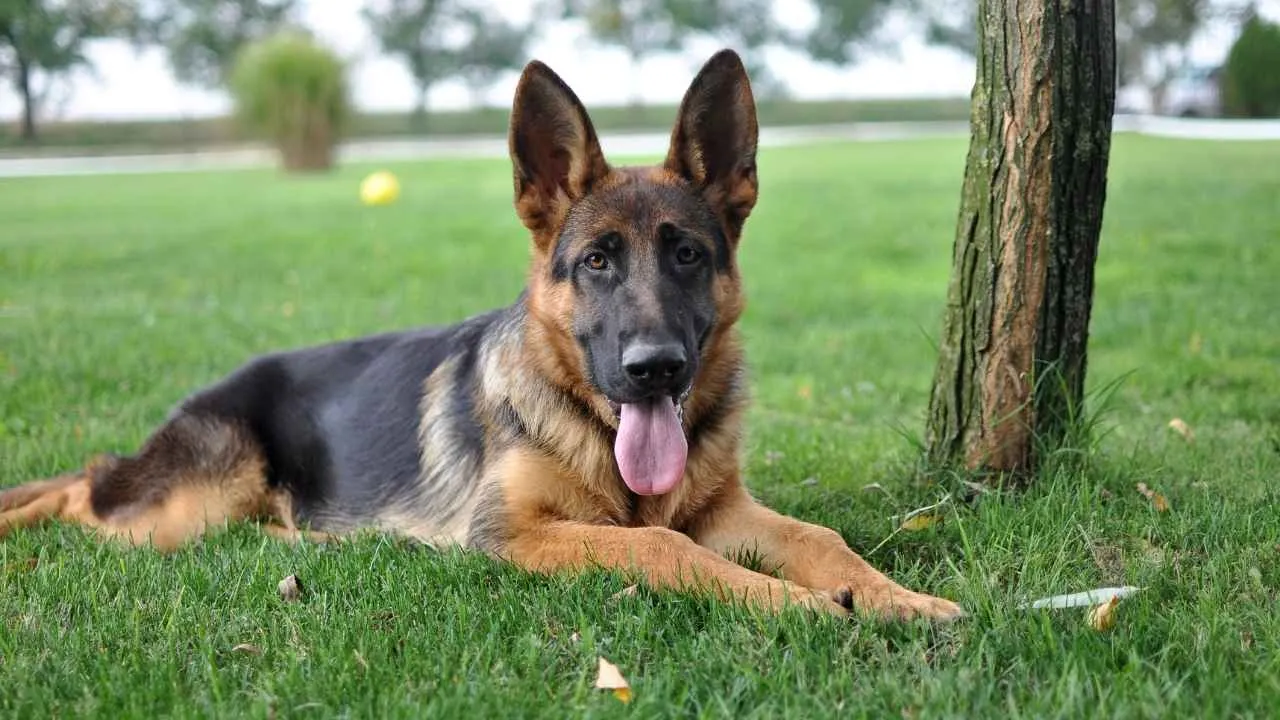
German Shepherds are intelligent, loyal, and highly trainable dogs, with instincts that make them excellent at tracking lost pets.
Their keen sense of smell allows them to detect faint scent trails, while their focus and determination help them follow these trails over long distances and through challenging environments.
According to PDSA, originally bred for herding, German Shepherds have a strong work ethic and high energy, which enables them to stay engaged during long searches.
Their agility and endurance allow them to navigate forests, urban areas, or rugged terrain while tracking a missing pet. Combined with consistent training and socialization, their loyalty and bond with handlers enable them to tackle even the most challenging searches for lost pets with confidence.
Fun Fact: German Shepherds can follow scent trails for hours and are often relied upon in emergency rescue situations because of their focus and stamina.
5. Belgian Malinois
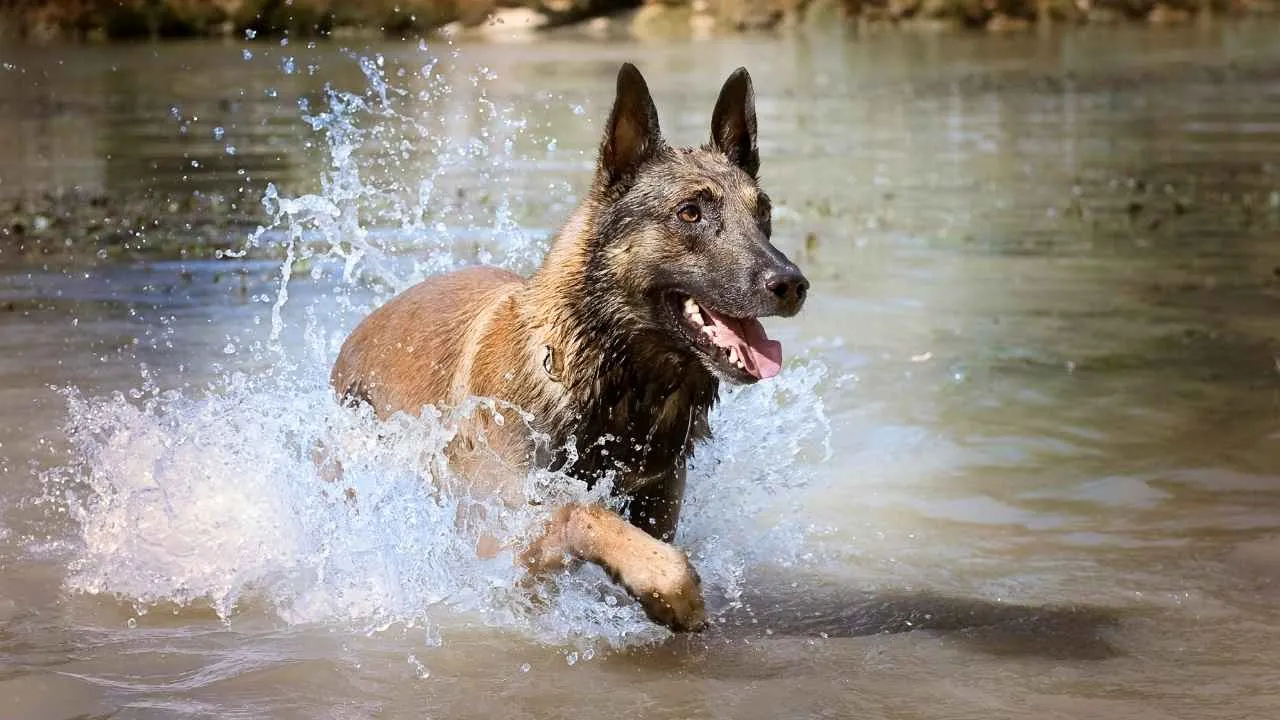
With unmatched energy and focus, Belgian Malinois are natural hunters of scent, making them well-suited for tracking lost pets.
Their sharp noses, intelligence, and determination allow them to pick up faint trails, navigate obstacles, and traverse challenging terrain, while their agility and stamina keep them on task until the lost pet is found.
Originally bred for herding in Belgium, Malinois are highly trainable and thrive on tasks that engage both mind and body. These tracking dogs are responsive to handlers, quickly learning to interpret signals and adjust their search strategies.
Their determination and stamina allow them to work for long hours without losing concentration, ensuring even difficult searches are thorough and effective.
Belgian Malinois also excel in teamwork, alerting handlers when they are on a trail and guiding them to the location of the lost pet. Their combination of intelligence, persistence, and loyalty makes them highly reliable in search teams.
Fun Fact: Belgian Malinois have also been trained to detect explosives, drugs, and human remains, showcasing their extraordinary scenting abilities.
6. Redbone Coonhound
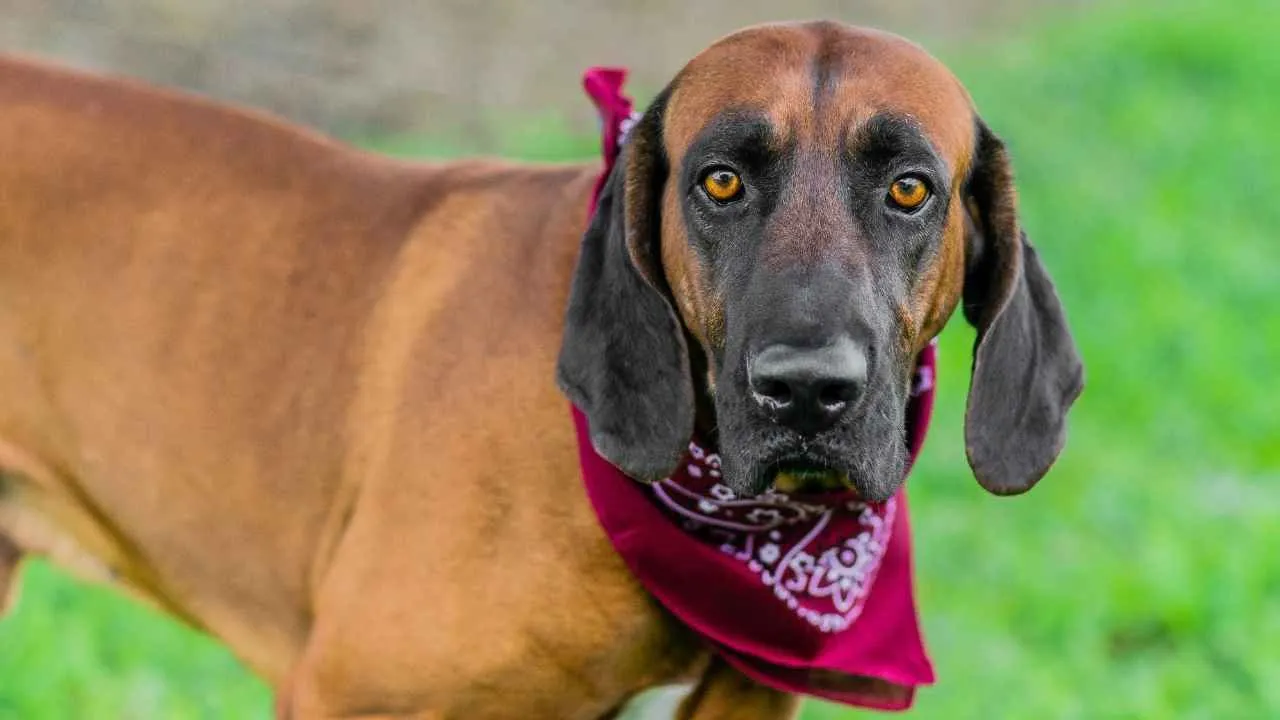
Redbone Coonhounds are natural scent trackers, highly effective at locating lost pets even in the wilderness.
Their exceptional noses allow them to pick up faint trails, while their ability to catch airborne scents, remember paths, and adapt to varied terrain ensures efficient tracking across forests, fields, or rugged landscapes.
Intelligent and highly trainable, Redbone Coonhounds respond well to handlers’ commands and rewards, which enhances their effectiveness even in locating missing persons.
Their persistence and focus keep them on the trail until the missing pet is found, while their agility and endurance allow them to navigate obstacles and challenging conditions with ease.
Friendly and loyal, they form strong bonds with handlers, making teamwork seamless and searches highly effective. Their love for positive reinforcement motivates them to track with precision and enthusiasm.
Fun Fact: Redbone Coonhounds have been trusted for decades in wilderness search operations due to their reliable scenting abilities and endurance.
7. Border Collie
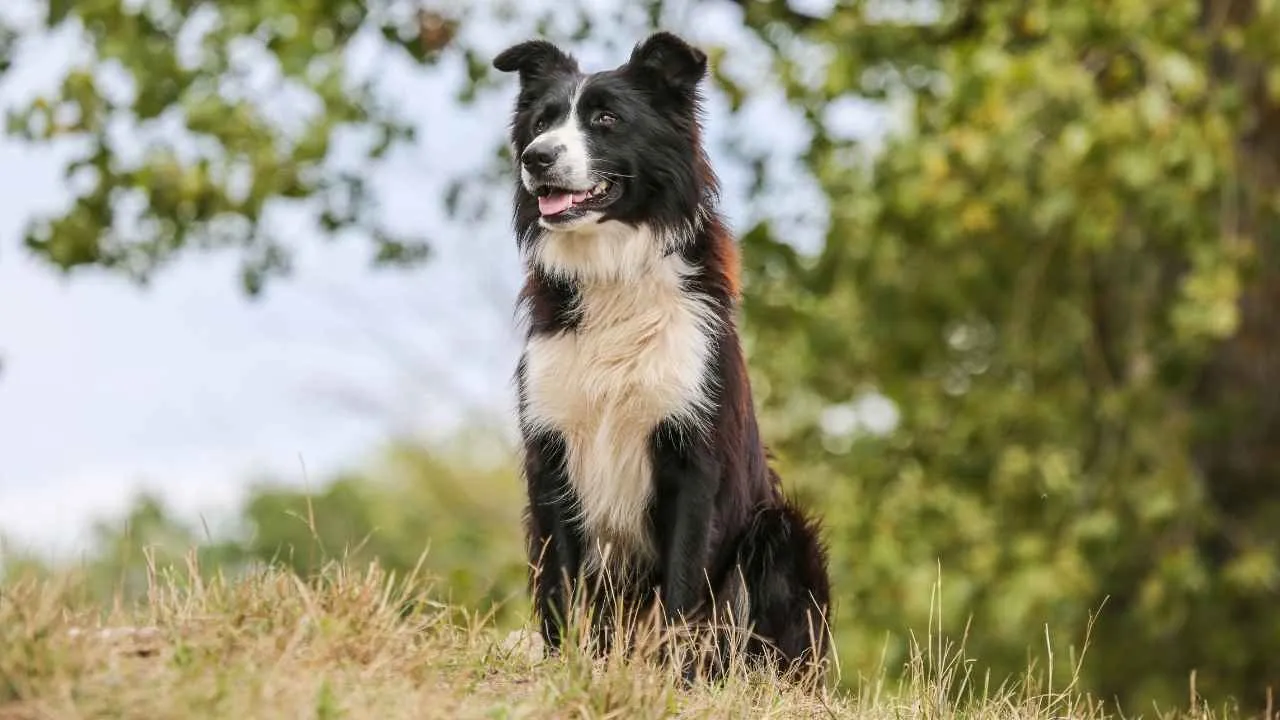
Border Collies are highly intelligent, energetic dogs known for their keen tracking abilities on the ground.
Their sharp noses and problem-solving instincts make them excellent at locating lost pets, even in tricky environments where trails may be faint or mixed with other scents, such as neighborhoods with cats or small animals.
Their temperament—alert, focused, and eager to work—makes them ideal for handlers who can engage them consistently in tracking tasks.
They thrive when given challenges that stimulate both mind and body, which enhances their effectiveness in search and rescue tasks.
Border Collies are also highly adaptable in disaster situations, navigating rubble, fields, or uneven terrain to follow scent trails efficiently. Their energy, agility, and strong bond with handlers make them reliable partners in reuniting lost pets with their families.
Fun Fact: Border Collies are considered one of the most trainable breeds, capable of learning complex tracking commands quickly.
8. Bluetick Coonhound
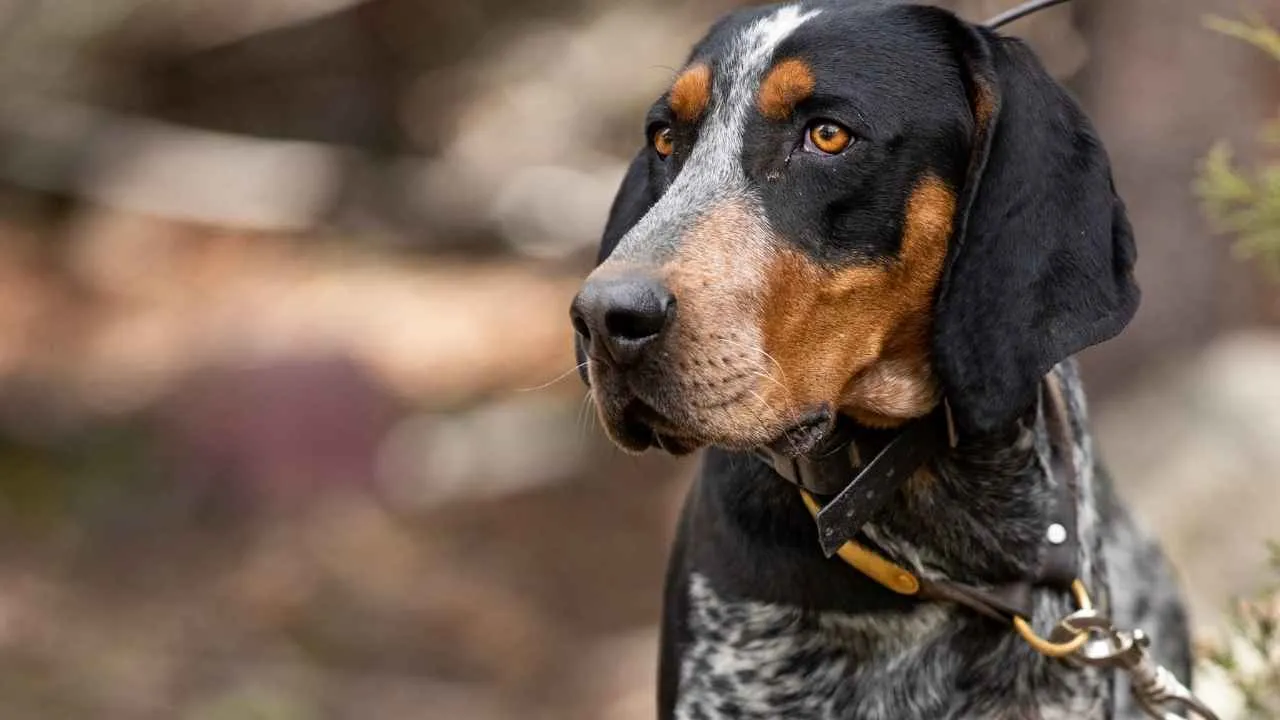
Bluetick Coonhounds are intelligent scent dogs, naturally skilled at tracking lost pets. Their sharp noses and determination allow them to follow faint trails over long distances, while their hunting instincts keep them focused on the scent.
These dogs are vocal when on a trail, baying or barking to signal progress, which can help handlers monitor their search in the field. Proper training is essential to ensure they stay focused and responsive, making them highly effective in search operations, as per WebMD.
Blueticks are also loving and loyal with family members, forming strong bonds with handlers that improve teamwork and tracking efficiency. Their persistence, intelligence, and adaptability make them ideal for reuniting lost pets with their families.
Fun Fact: Bluetick Coonhounds were originally bred for hunting raccoons, giving them one of the keenest noses among scent dogs.
9. German Shorthaired Pointer
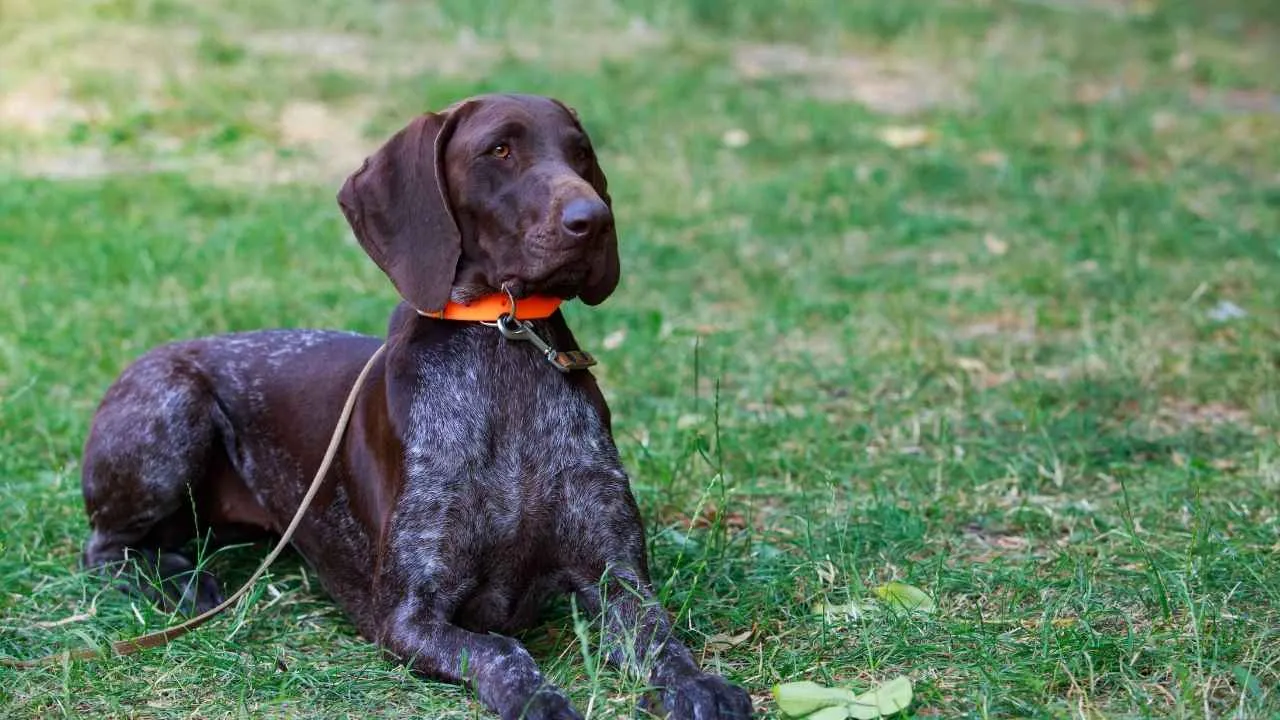
German Shorthaired Pointers are highly intelligent, energetic dogs with an extraordinary sense of smell, making them excellent at tracking lost pets. Their athletic build and stamina allow them to cover large areas quickly, while their agility helps them navigate challenging terrain during searches.
These dogs are highly motivated and eager to work, quickly learning to follow scent trails and signals from their handlers. Their focus and persistence allow them to stay on task even in distracting or difficult environments, making them reliable rescue dogs.
With webbed feet and a love for water, they can also traverse streams or ponds to follow a scent, giving them an edge in different environments, as per Purina.
Fun Fact: German Shorthaired Pointers are multipurpose hunting dogs, originally bred to track and retrieve game, a skill that translates perfectly to locating lost pets.
10. Saint Bernard
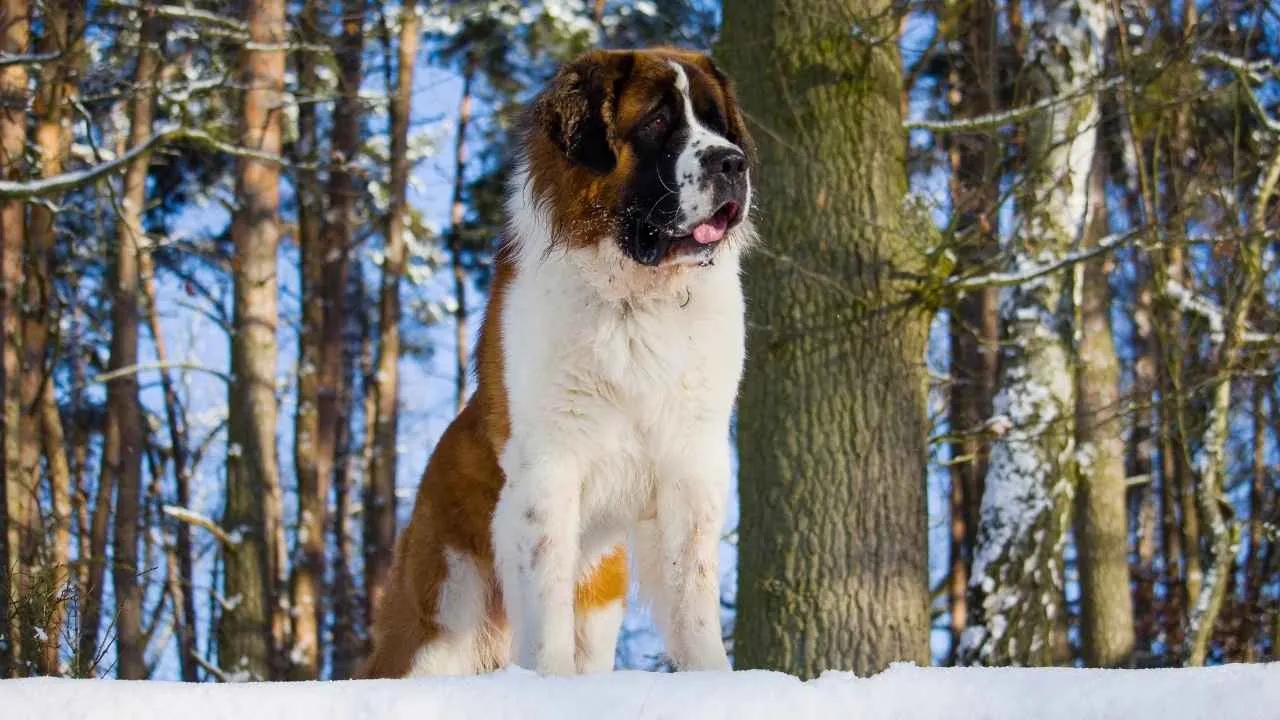
Saint Bernards are renowned for their exceptional tracking abilities and rescue instincts. Originally brought to the Menthon Monastery in Switzerland during the 1600s as guard dogs, they quickly proved their talent for finding stranded or missing people in the mountains.
Their strong sense of smell, impressive stamina, and calm temperament allowed them to navigate snowy and rugged terrain efficiently.
Highly intelligent and trainable, these gentle giants can follow faint scent trails, making them capable partners in locating lost pets as well.
Their patience and focus enable them to work steadily alongside handlers, ensuring searches are thorough and safe.
Fun Fact: Saint Bernards’ historic role in mountain rescues highlights their natural ability to track and locate missing individuals—and pets—over long distances.
Conclusion
Dogs with exceptional tracking abilities are invaluable when it comes to locating lost pets. Their keen sense of smell, intelligence, agility, and stamina allow them to follow faint scent trails across forests, urban areas, and challenging terrain.
From scent discrimination to alerting and guiding handlers, these breeds use a combination of instincts and training to perform search tasks efficiently and safely.
Consistent training, socialization, and strong bonds with handlers enhance their effectiveness, making them reliable partners in reunions between pets and their families.
Whether navigating snow, dense woods, or open fields, these tracking dogs demonstrate persistence, determination, and adaptability that ensure lost pets are found as quickly as possible.
By understanding the strengths and unique traits of these breeds, pet owners and rescue teams can better utilize their abilities to save lives and bring peace of mind to families.


